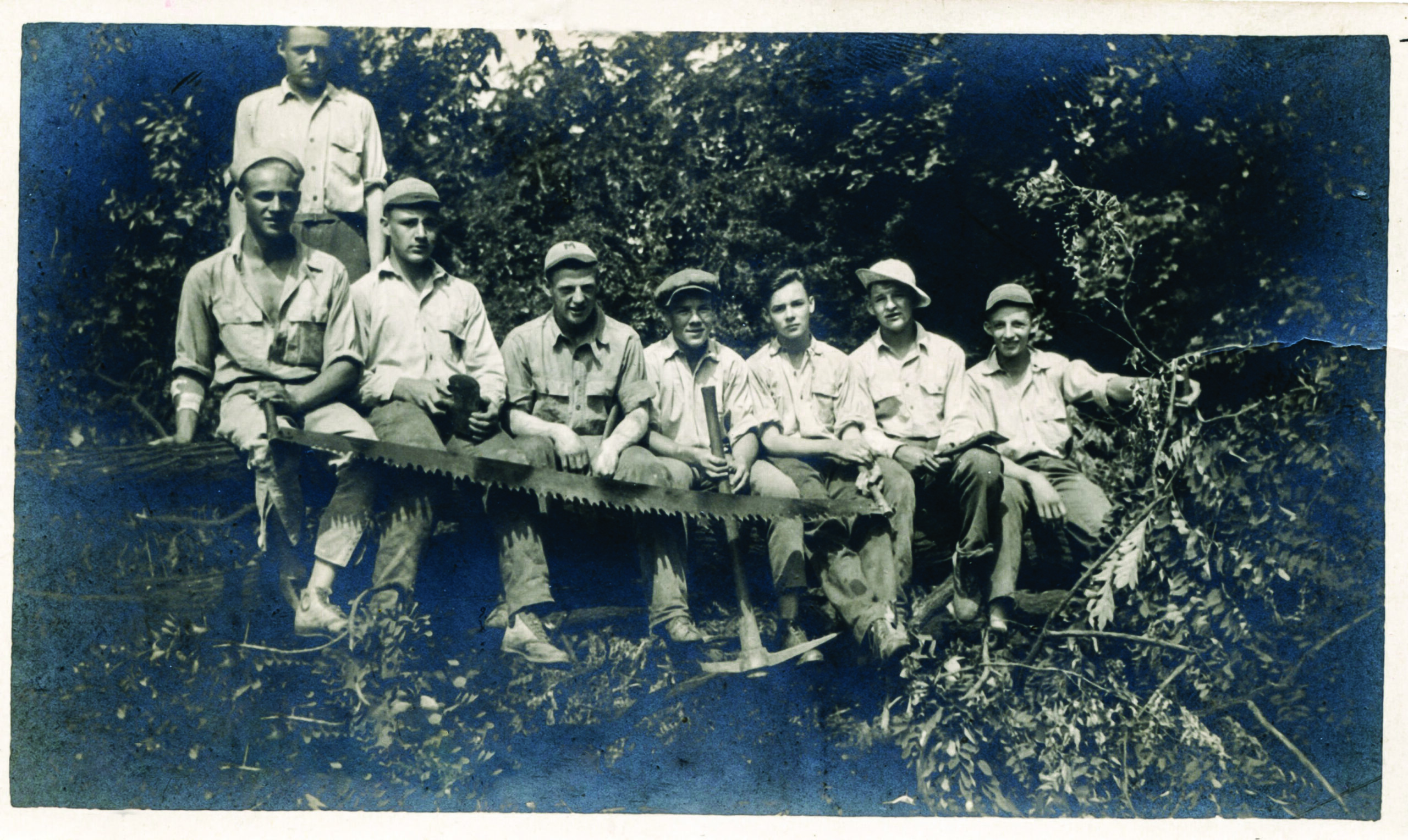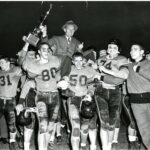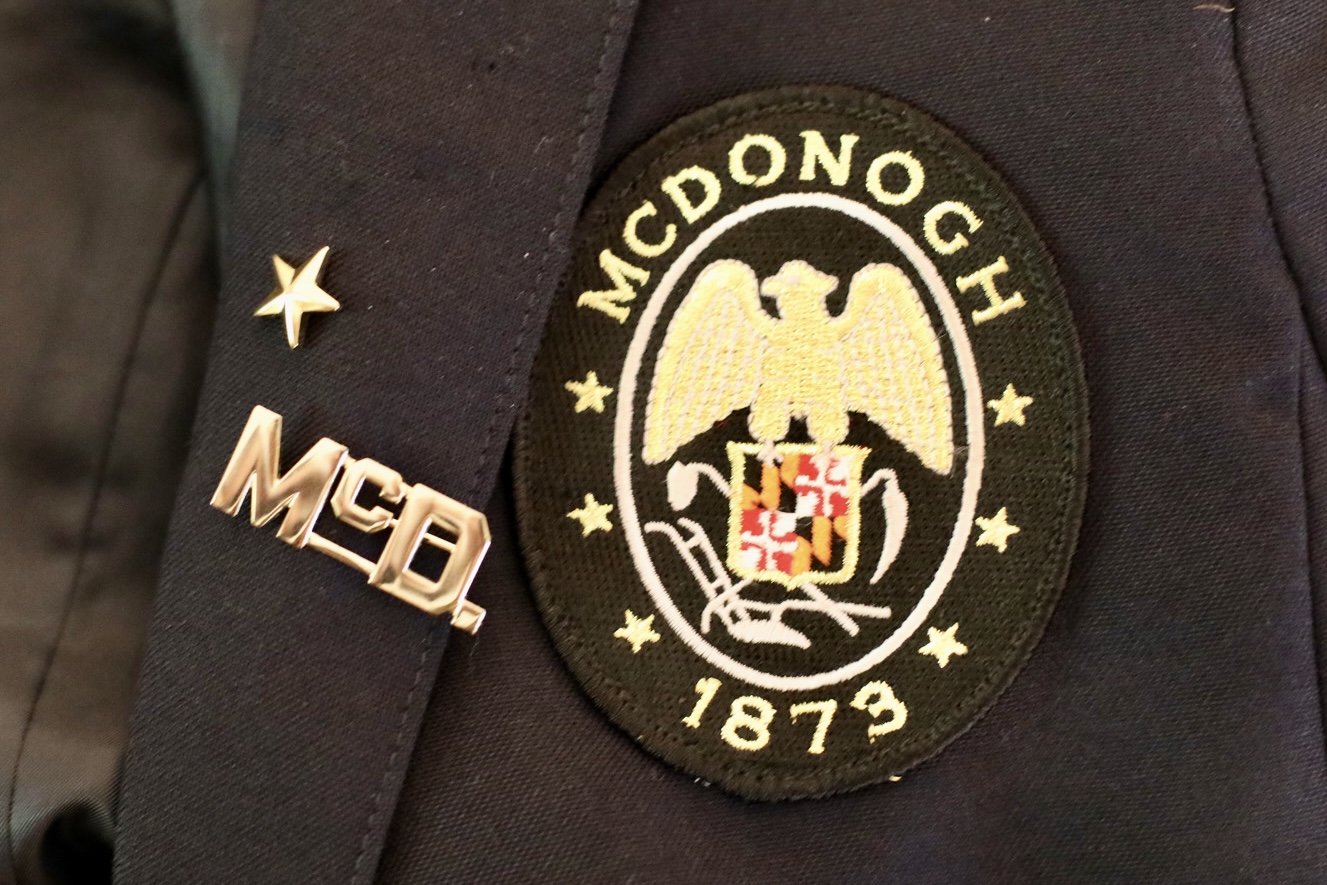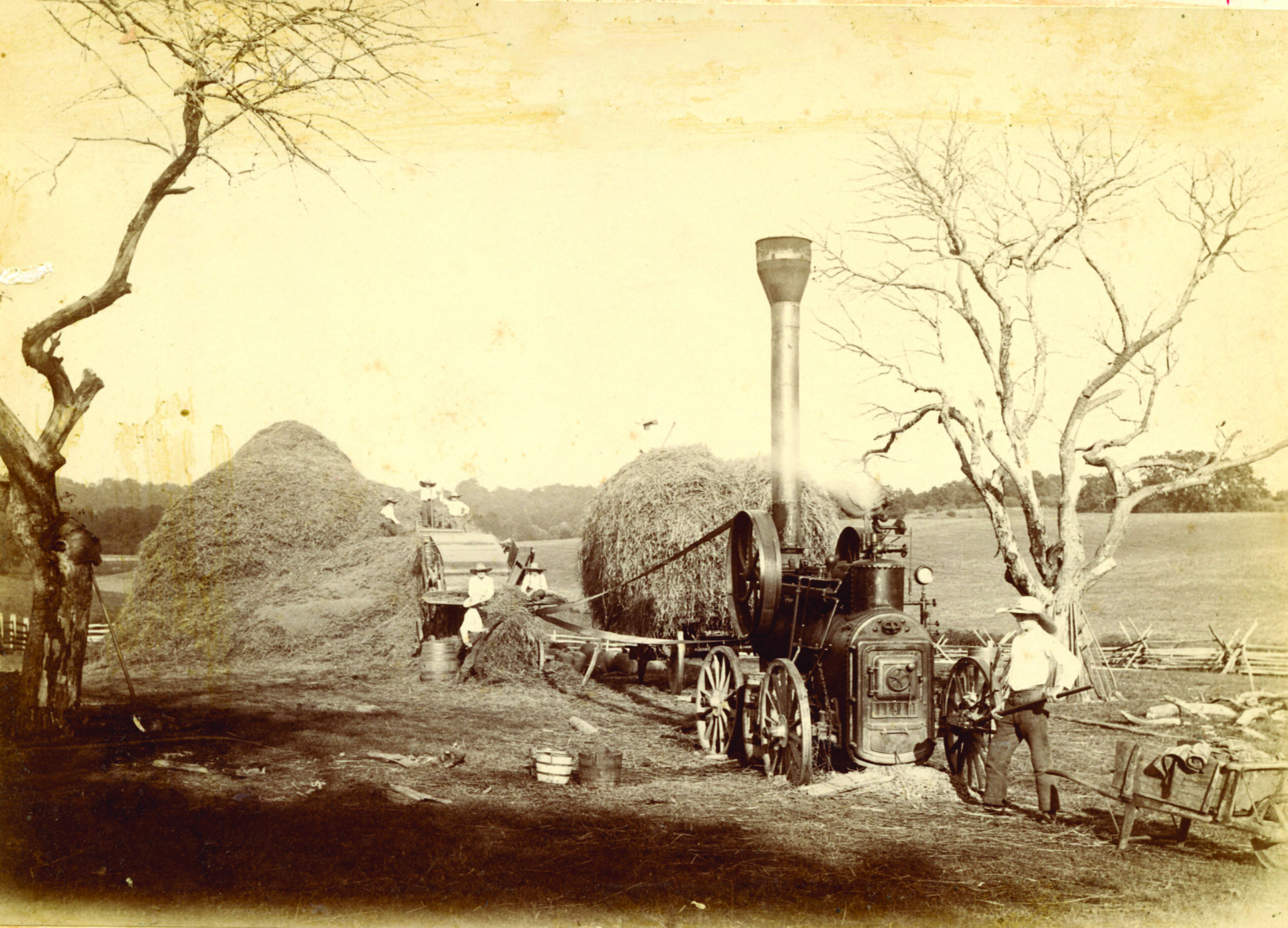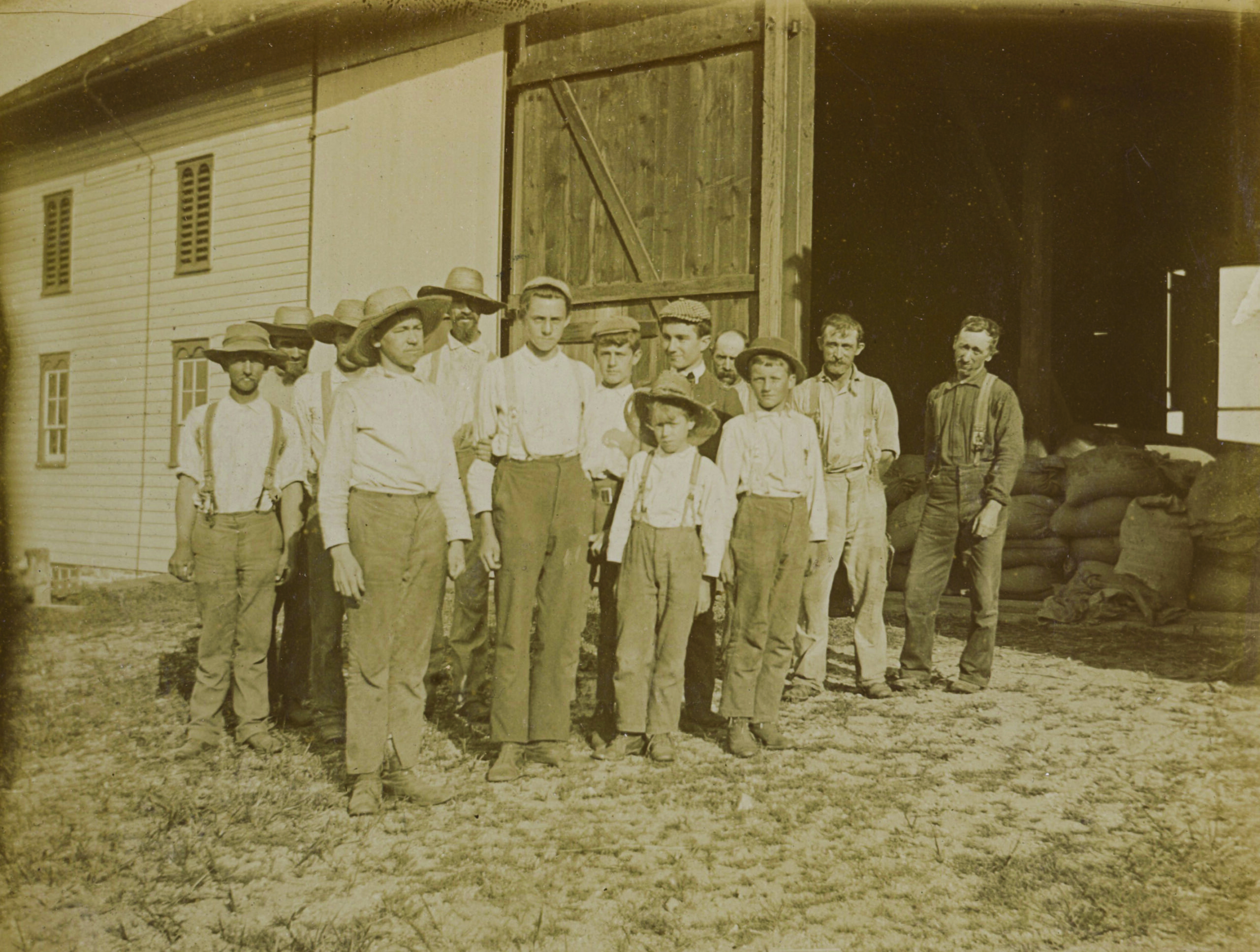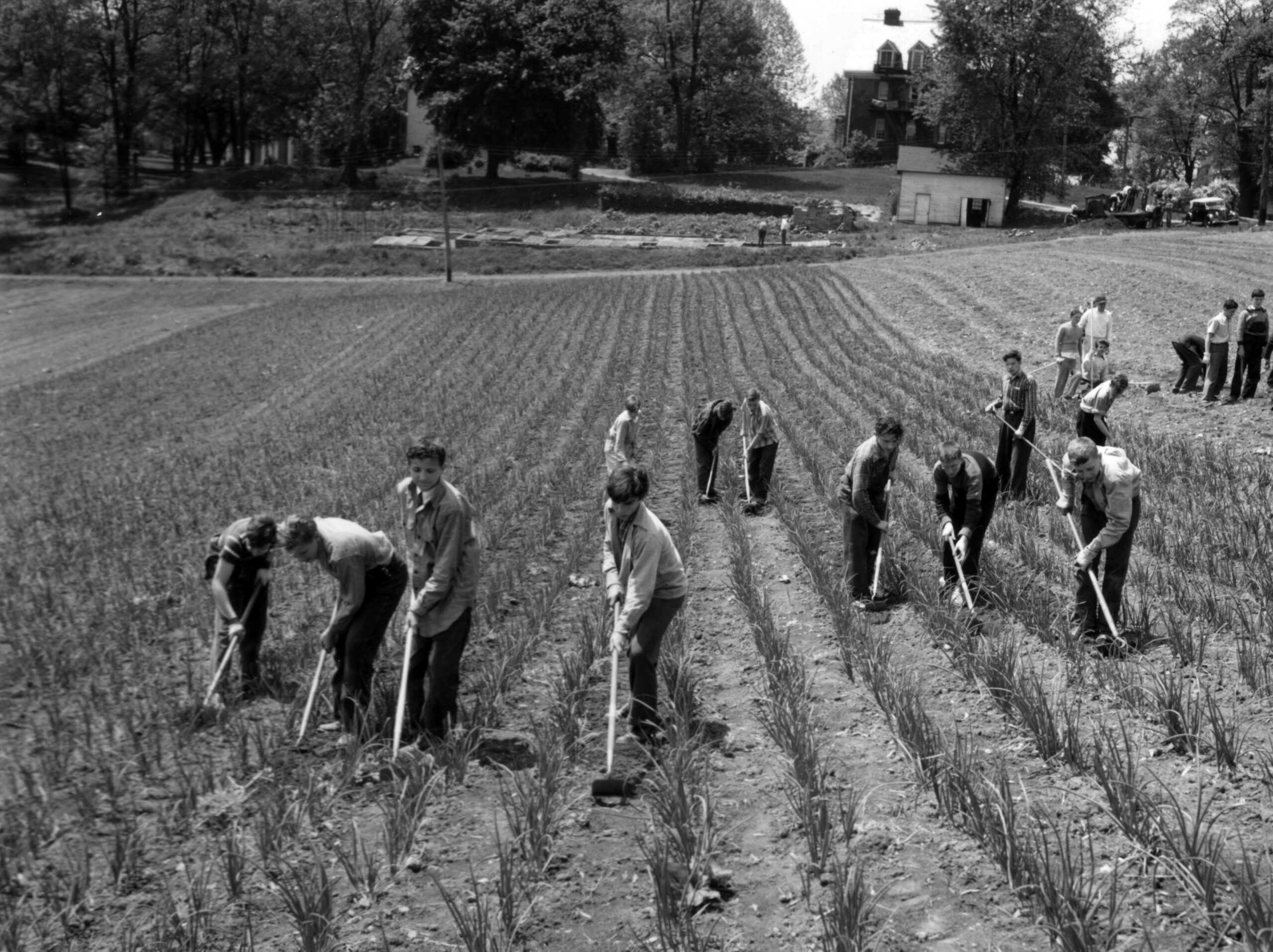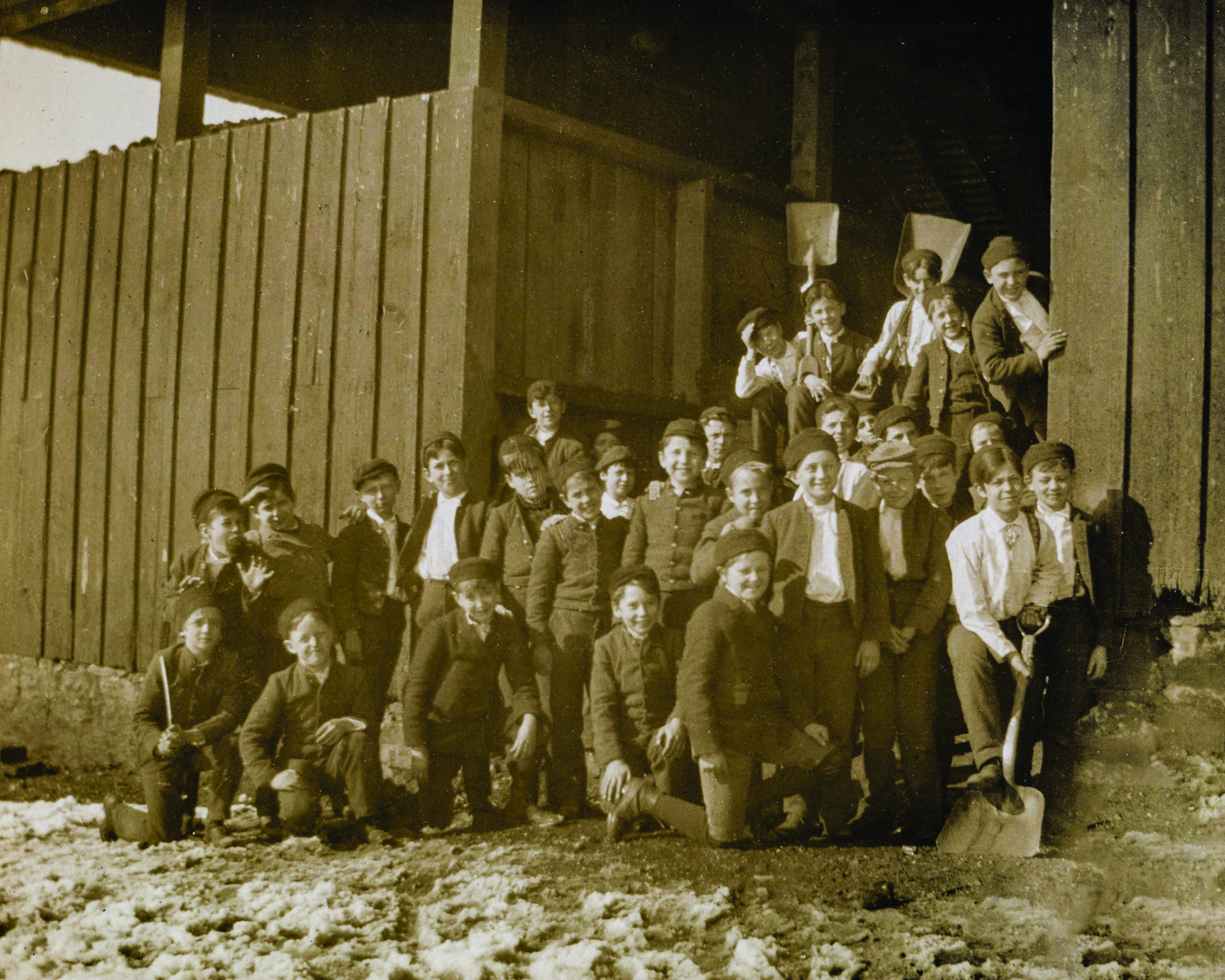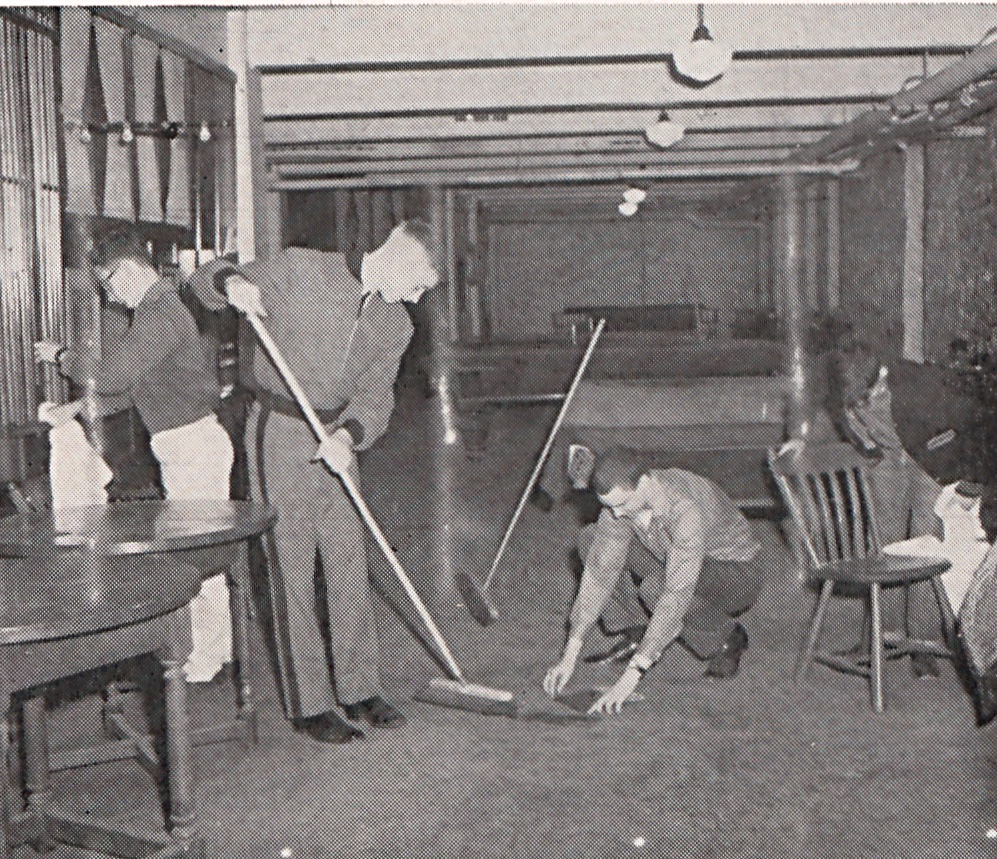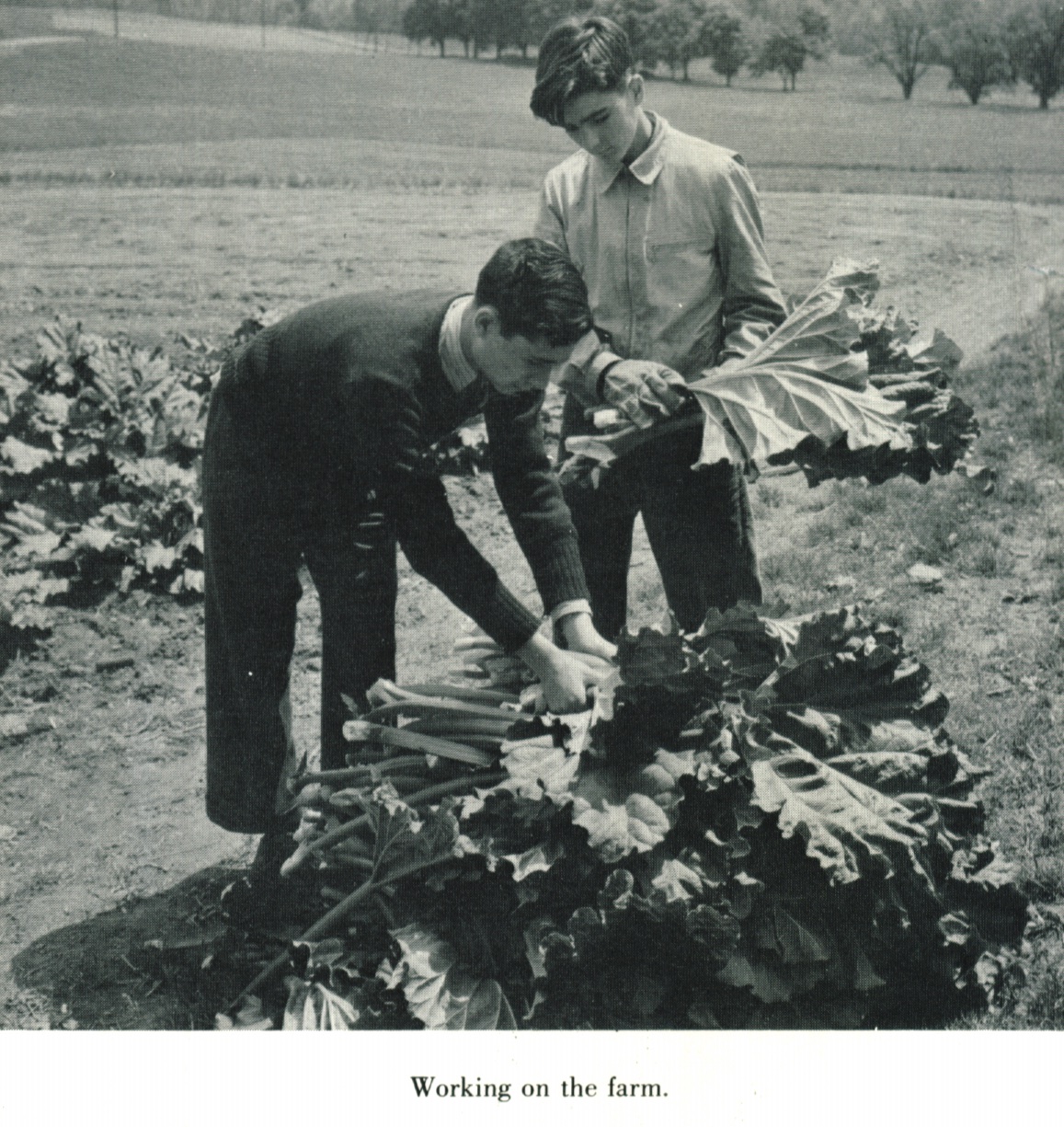Life was not easy for McDonogh students in the early days. Founded as a farm school, students were expected to plant, weed, and gather crops, in addition to devoting four to six hours each day to school work. There were no janitors, so housekeeping was also done by the boys. Furthermore, each teacher (all male at the time) also had a house boy to help his wife with the chores of their house or apartment. Following are accounts of the work performed by squads of students as documented in The Week:
- Work Squads. (May 18, 1901) When the bell rings at half past three the bosses of the various squads read out the boys on their respective squads. We then go to work, which lasts till half past five. This is true only with the outside squad. The printers and carpenters go to work as soon as they have changed to their work clothes and get off earlier. When the boys have finished their tasks they may do what they please around the school till six o’clock. At six o’clock the first bell for supper rings and the boys have half an hour in which to change back to their school clothes and to wash.
- The Yard Squad. (August 14, 1897) The yard squad is composed of two boys. When we go to work in the morning the first thing we have to do is to get coal and wood. One of us gets wood and the other gets coal. We have to get coal and wood for the laundry. On Friday, Saturday and Monday, we do not have to get coal or wood for the laundry. On Saturdays, we have to fill the wood and coal boxes. After we finish coal and wood we have to sweep the laundry walk south of the school, and then get the baker some wood and empty his ashes. Then we report. In the afternoon we have to sweep the walks around the school, and the basement. When we finish the basement we have to take the dirty towels down to the laundry, and get clean ones. After that, we have to clean the basins and wash the looking-glasses. We have to empty the dirt box once a week. We generally get off about ten o’clock in the morning, and about four o’clock in the afternoon.
- Cleaning Out the Basement. (August 14, 1897) We had to clean the cellar. We went into the room where the soap is kept. There we had to clean out the heater boxes. We crawled through them and brushed all the dirt before us. After we had cleaned the heater boxes in this room we went to the four other rooms and cleaned them in the same way. After we had cleaned out the heater boxes we had to sweep the room and straighten up the things. We then had to wash all the windows except those in the bakeroom. Then we were told to get some lime and spread it in the rooms and heater boxes. This is a very disagreeable job, as the lime gets in your nose and mouth and chokes you.
- Husking Corn. (October 24, 1891) The corn that was raised at McDonogh this year is in the field east of Mr. Blair’s garden. There has not been much husking done yet, because the corn is not well enough cured. If Mr. Clousher should husk his corn while the weather is so warm and damp the corn would become mouldy and would be of no use. As the weather has been tolerably cold for some time, and as we have had several heavy frosts, he will probably begin to husk this week. All the boys that expect to husk corn are getting husking pegs ready. Some of the boys buy husking pegs, but most of them use the handles of old tooth brushes. The boys do not like husking corn and are always very glad when it is over. Sometimes the corn has ice or frost on it, and then if a boy is not wearing a pair of gloves his hands almost freeze. We generally finish corn before the twenty-first of November.
- The Coal Squad. (March 23, 1912) Every year about the first of October Mr. Miller takes the largest boys off his squad to work on the coal squad. Every day, immediately after dinner, we go down to the engine room, and shovel back the coal left over from the day before. It takes us about fifteen minutes to do this. After we finish we get two carts and load them with coal. If the coal is just outside the engine room we get off in an hour at the latest. If the coal is down near the bin, it takes us about an hour and a quarter. We put in as much coal as Mr. Mitten wants. Then we are off. The coal he burns is bituminous or soft coal. Every Saturday we put in twice as much as on any other day, as it has to last until Monday.
- The Coal Squad. (November 20, 1926) The coal is brought in by carts, the power being furnished by the boys. This work will make you or break you. The present coal squad is very husky and the coal is brought in so fast it is hard to keep count of it. Nobody seems to realize that, if it were not for this all-important squad, we would very soon freeze.
In a 1914 report filed by Dr. Rudolph R. Reeder, the nationally respected head of the Orphanage Asylum Society outside of New York City stated, “McDonogh is not a school farm for a school farm would certainly be a farm used in an educational way.” He concluded that the boys were subject to “menial work” which was exhausting and “very unfavorable for good school work.” Reeder observed, “It was a very long working day, too long even for strong, mature men.”
While their workload eased and more focus was placed on academics, students continued to be responsible for chores from mucking the stables to laundry detail. Steve Simmers ‘70 once recalled laundry duty: “Every day the boys whose morning work assignment was laundry detail had to get the dirty laundry down to the loading dock and drag up a cart full of clean laundry to the third floor where the laundry room was. We all had a cubicle with our name on it where we could find our clean shirts and underwear. Whenever you had a new kid or a young kid, you’d bet him to ride the cart down the stairs from top to bottom. You could hear him screaming all the way down until it hit a wall to stop or it turned upside down with him on the bottom of bushels of dirty laundry.”
Through the 1980s, scholarship students were required to live on campus and help with daily chores. Each morning before breakfast, a faculty supervisor assigned the students to one of many tasks including trash removal, sweeping, cleaning, or horse stall mucking—when deserved.
